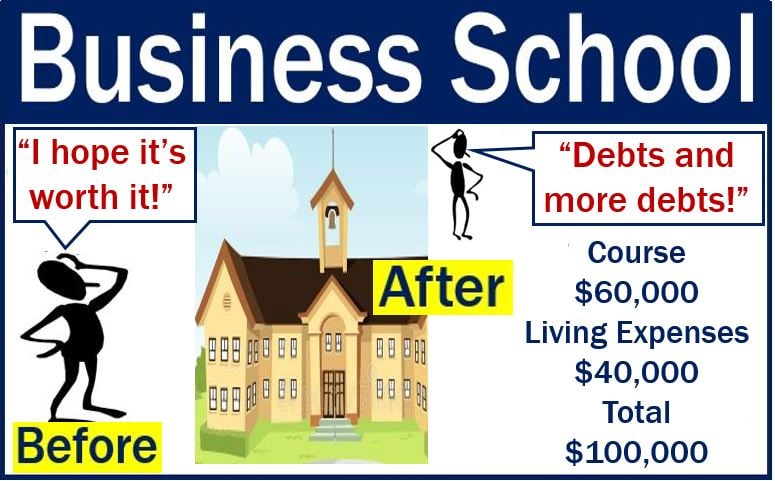A Business School or School of Business is a bachelor’s degree or postgraduate-level institution that teaches business administration or management. We also call it a School of Management or School of Business Administration.
In a business school, students study topics such as economics, administration, strategy, finance, and entrepreneurship. They also study marketing, public relations, leadership, and accounting.
Put simply; business schools teach people how to manage a business. Many business managers have studied at such schools. However, some CEOs of major corporations never went to business school. In fact, some of them do not even have a degree.
Sir Richard Branson founded the Virgin Group. Virgin today controls more than 400 different companies. Sir Richard left school at sixteen. So, not only does he have no degree, but no A-levels either. A-levels are the British equivalent of senior high school.
BBA (Bachelor of Business Administration) programs are for undergraduates. Graduate programs may include master’s degrees, MBA (Master of Business Administration) programs, and Executive MBA programs. Doctoral studies are also for graduates.
Business schools date back to the beginning of the 19th century. ESCP (Ecole Supérieure de Commerce de Paris), which started teaching in 1819, is the world’s oldest business school.
Writing in Fortune magazine; John A. Byrne quotes MBA graduate Marianna Zanetti who said: “There is an education bubble around these kinds of degrees. I don’t think they have much impact on people’s careers.”
Today ESCP has campuses in Paris, Berlin, London, Madrid, and Turin. Two years ago, the Financial Times ranked its Master in Management program second in the world.
Business school types
There are many kinds of business schools. While some are stand-alone institutions, others are faculties or departments within a university. There are also some that belong to institutions that teach only business topics. Among all of these options there also exists both traditional classroom programs and online business degree programs.
In the United States and Canada, a business school refers to a university program. The programs offer either an undergraduate bachelor’s degree or a graduate master’s qualification.
Some universities in Asia and Europe teach only business.
Many private business schools have no university affiliation.
Many business schools
There are thousands of business schools across the world. In fact, there are more than 600 in the USA alone.
Choosing the right business school is hard enough. However, then you have to find the right program.
According to the Financial Times, the world’s top-5 business schools (for MBAs) in 2024 were:
1. University of Pennsylvania: Wharton (USA)
2. Insead (Spain)
3. Columbia Business School (USA)
4. SDA Bocconi School of Management (Italy)
5. IESE Business School (Spain)
Business journals rank business schools according to either the career progress of graduates or student satisfaction and recruiter feedback. In other words, according to their long-term or short-term benefits respectively.

